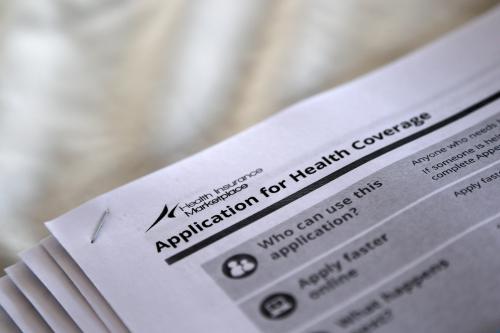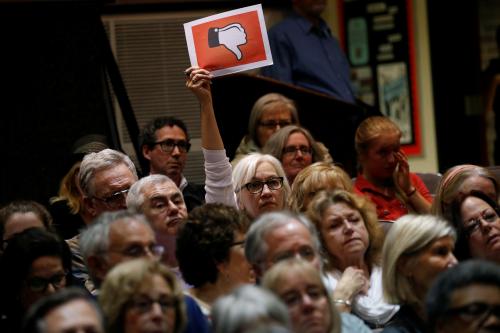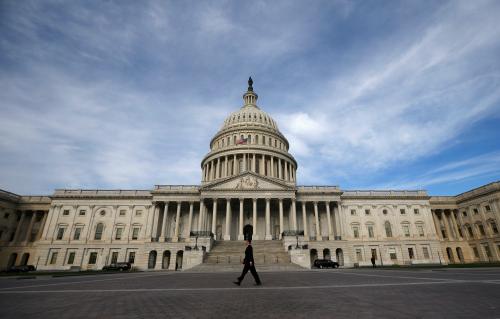Republican leaders hoping that their second attempt to repeal and replace Obamacare would prove more popular than the first can’t draw much from the Quinnipiac poll released on May 11. Only 21 percent of American voters approve of their bill, compared to 56 percent who disapprove. Conservative lawmakers who are insisting on a total repeal fare even worse: only 19 percent of the people think that Obamacare should be completely repealed, versus 45 percent who favor repealing only parts of it and 34 percent who want none of it to be repealed.
A closer look at some elements of the new bill explains the negative public sentiment. Forty-two percent of American voters think the Republican plan will increase costs; only 11 percent think it will lower them. Fully 75 percent oppose the bill’s provision to give states an option that could raise insurance costs for individuals with preexisting conditions. Eighty-two percent say it is “very important” that health insurance be affordable for all Americans.
Although President Trump will not be on the ballot in next year’s midterm election, he is not exempt from this negative public judgment. Only 28 percent approve of the way he is handling health care, versus 66 percent disapproval.
It should be of concern to the White House that this sentiment extends to Mr. Trump’s core supporters, white voters without college degrees, 52 percent of whom disapprove of the way he is dealing with health care. Only 27 percent of these voters favor the total repeal of Obamacare; only 25 percent approve of the latest Republican bill. A small minority–14 percent–believe it will lower health insurance costs, and 73 percent oppose state options that could raise costs for individuals with preexisting conditions.
Republicans are caught between the proverbial rock and a hard place. Not repealing Obamacare after promising to do so for 7 years would enrage hard-core conservatives who continue to favor this step. But replacing it with the kind of legislation that a bare majority of 217 House members support could make matters even worse by antagonizing a broad swath of the electorate—including the voters who gave President Trump his Electoral College majority.
The Brookings Institution is committed to quality, independence, and impact.
We are supported by a diverse array of funders. In line with our values and policies, each Brookings publication represents the sole views of its author(s).








Commentary
Polling Spotlight: Voters want a health care fix, not repeal
May 12, 2017